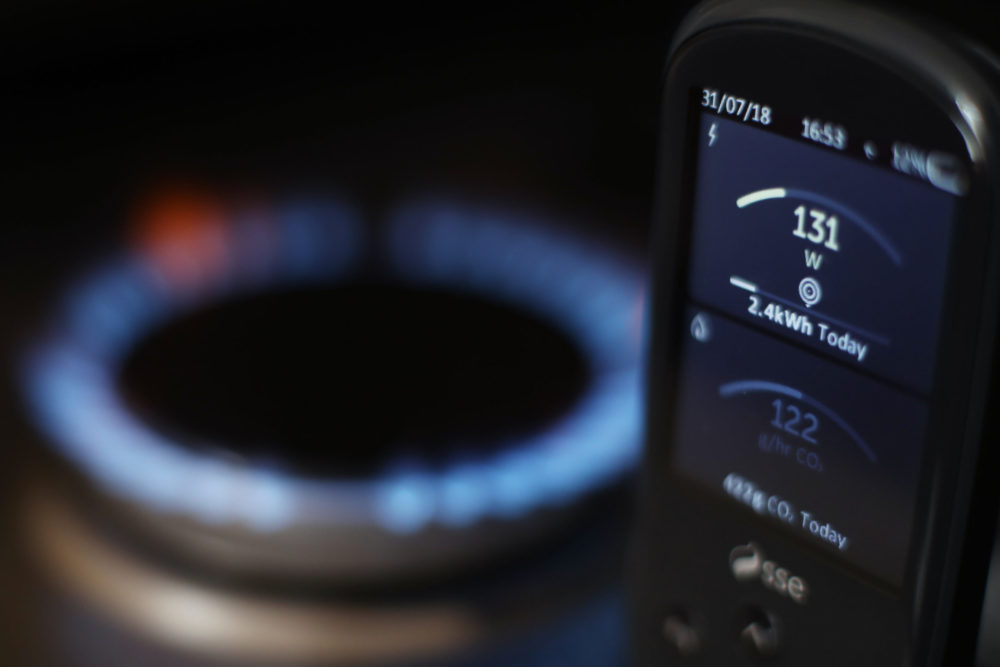UK Inflation slows to 17-month low of 6.8%

Inflation slowed to its lowest for 17 months in July due to a fall in energy prices and a slowdown in food price increases, according to official figures.
The Office for National Statistics (ONS) said Consumer Prices Index inflation was 6.8% in July, down from 7.9% in June.
It is the lowest rate since February 2022.
Chancellor Jeremy Hunt said the easing of inflation shows “the decisive action we’ve taken to tackle inflation is working” but “we’re not at the finish line”.
“We must stick to our plan to halve inflation this year and get it back to the 2% target as soon as possible,” he added.
Prime Minister Rishi Sunak pledged at the start of the year to cut inflation in half, from a level of 10.7%, by the end of 2023.
Economists have most recently forecast that the Government will just achieve this, with the Bank of England currently projecting inflation to be around 4.9% in the last three months of the year.
Below expectations
The latest inflation reading was marginally below expectations, with analysts having predicted a reading of 6.7% for the month.
ONS deputy director of prices Matthew Corder said: “Inflation slowed markedly for the second consecutive month, driven by falls in the price of gas and electricity as the reduction in the energy price cap came into effect.
“Although remaining high, food price inflation has also eased again, particularly for milk, bread and cereal.
“Core inflation was unchanged in July, with the falling cost of goods offset by higher service prices.”
The ONS said lower energy prices, which have slumped after volatility sparked by the Russian invasion of Ukraine, were a key driver in the slowdown in inflation.
From the start of July, the average price for each unit of electricity that someone uses was slashed to 30p per unit, while gas prices fell to 8p per unit, meaning the average annual energy bill for a household dropped to £2,074 from the capped rate of £2,500.
Gas prices declined by more than 25% in July against the previous month due to the cap change, while electricity prices were 8.6% lower.
Soaring food inflation also slowed down markedly, contributing to the reduction in the overall inflation rate.
Food prices increased by 14.9% in July against the same month last year, easing back from 17.3% growth for June.
The fresh inflation data comes a day after the ONS revealed that wages grew at a record pace over the three months to June, with regular pay growth, which excludes bonuses, reaching 7.8% compared with a year earlier.
Nevertheless, wages were still 0.6% lower once inflation for the period was taken into account.
Support our Nation today
For the price of a cup of coffee a month you can help us create an independent, not-for-profit, national news service for the people of Wales, by the people of Wales.







Inflation here is still a lot higher than other G7 countries. Just hitting us with higher interest rates is not working, the government has to start other measures to tackle the problem. One of the reasons why inflation is stubbornly high is corporate greed, in Spain this was tackled by a windfall tax on profits and tighter price controls on basic food essentials. Spanish inflation rate is now just 2%. Of course the Tories don’t want to hurt their precious business, too many donors for a start. Will a future Labour government be any different? It’s looking increasing doubtful. As… Read more »
Nothing to feel happy about. The base price for everything is alot higher now. Prices may grow a little slower than before, but instead of bigger energy bills or food costs, our mortgages gone up. So banks get more money, smaller shops etc get less as disposable income not improving. New ideas needed
Remember that the calculation of inflation does not include any costs for housing. So basically, 6.7% is very bad, food inflation is even higher and housing costs are off the scale.
Same old turd gets polished afresh every month but the stink gets worse! It’s inflation, rising prices year on year so no scope for celebrating a small decline in the rate at which our purchasing power gets eroded. Anyone who thinks wages are driving inflation has a screw loose. This lot kicked off with huge surges in energy and fuel prices which gave rapacious retailers scope for banging prices up far more than necessary. Any wage growth is small compensation for losses already incurred by the wage and salary earners. And those on fixed pensions and benefits are well and… Read more »
Don’t mind people marking it down but if the comment is objectionable come out and articulate why or is that beyond your ability, doh?